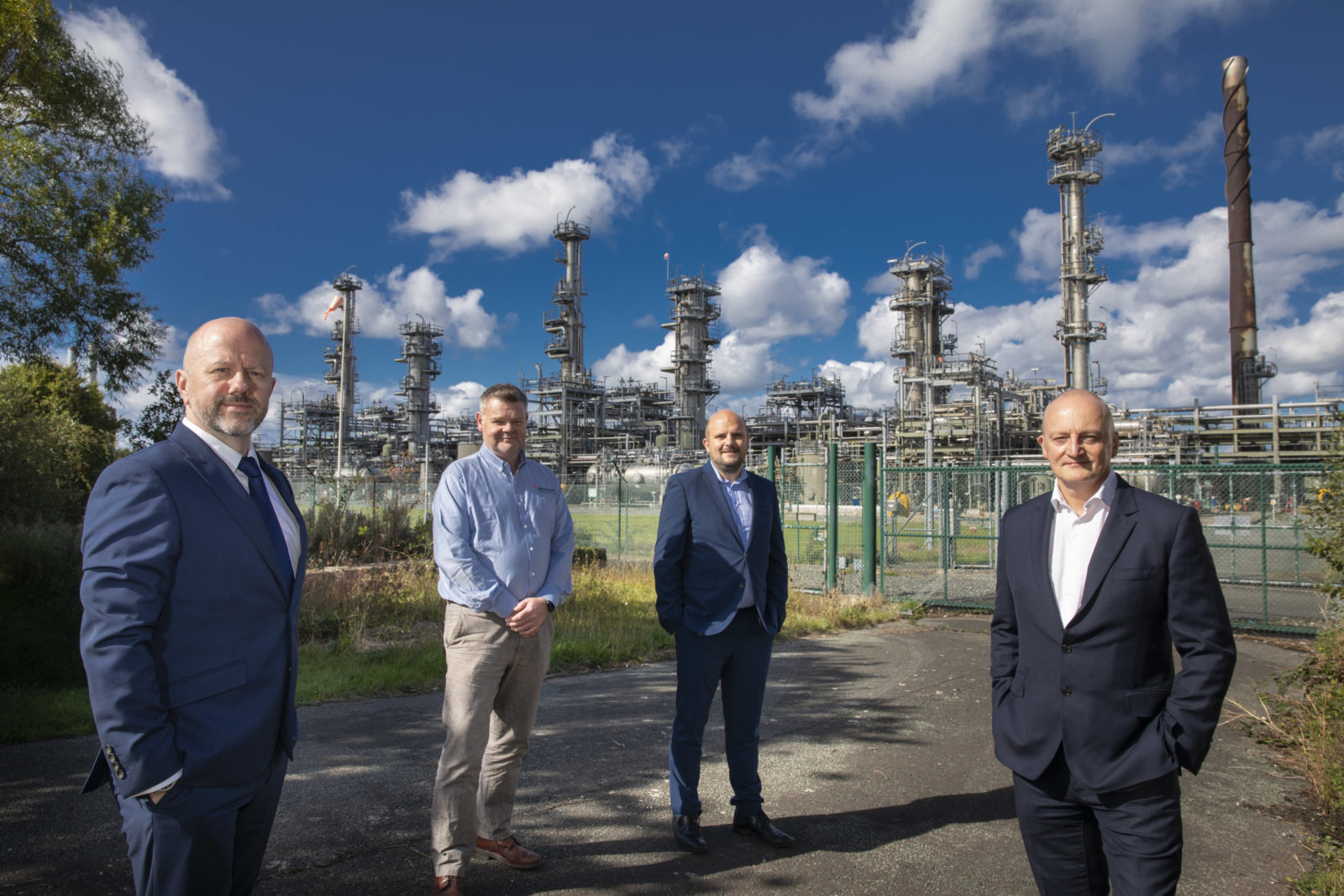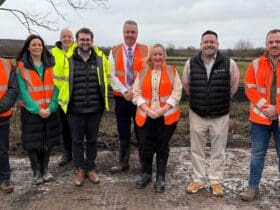Business leaders are backing trailblazing plans to produce low carbon hydrogen for industry and store CO2 under the seabed off the coast of North Wales.
The North Wales Mersey Dee Business Council say the HyNet project will provide a once-in-a-generation boost, pumping £17 billion into the cross border regional economy, creating 55,000 permanent jobs and 6,000 new construction jobs each year in the process.
At the same time, experts estimate the switch away from fossil fuels to low carbon hydrogen for businesses will potentially save 10 million tonnes of carbon dioxide a year being emitted into the atmosphere by 2030.
According to the HyNet consortium partners, that’s the equivalent of taking four million cars off the road.
The hydrogen will be produced by Vertex Hydrogen at Stanlow Manufacturing Complex in Ellesmere Port which will be decarbonised and adapted to produce the hydrogen instead of refining crude oil.
The so-called blue hydrogen will then be piped to industrial users and power generators, as part of what’s being described as a green energy revolution.
The CO2 by-product from the hydrogen production will be stored in the depleted oil and gas field in Liverpool Bay operated by Eni UK.
The company’s terminal in Flintshire will be repurposed so that CO2 can be pumped into the sandstone reservoirs which will be depleted by the mid-2020s. The caverns in the Cheshire salt basin will also be used for storage.
HyNet is being fuelled by millions in funding from the UK Government, alongside private investment by HyNet’s consortium partners, and was named as a “project to be accelerated”.
It’s hoped the ambitious scheme can be up and running by the end of 2025.
The Business Council, which is also the driving force behind the Net Zero North Wales network which supports North Wales businesses and not-for-profit organisations to reach net zero, believes the HyNet project will be a big help in achieving that goal.
Business Council chief executive Ashley Rogers: “Our businesses in North Wales will need access to substantial supplies of low carbon fuels and energy to decarbonise and HyNet is a major part of the equation.
“We’re very fortunate that we already have a large amount of the infrastructure necessary for hydrogen supply and also the carbon capture.
“This is a once-in-a-generation opportunity, creating jobs and prosperity in North Wales and across the North West.
“Seeing major businesses with bases in North Wales are already involved, such as Hanson in Padeswood and Eni is really encouraging. We are already seeing benefits through jobs being secured at Eni in Talacre.
“Thanks to the major support from the UK Government, HyNet is making amazing progress..
Eni district manager Andrew Gwenter said: “Repurposing Eni’s existing infrastructure is one of the key strengths of the HyNet project.
“It enables fast implementation, environmental advantages and affordability by reducing emissions and protecting jobs at a lower cost to the taxpayer, while helping even the hard-to-abate sectors of British industry to decarbonise and prosper globally.
“The support given to our project by the UK Government demonstrates the importance of the contribution that HyNet can make to the decarbonisation of pivotal activities in the country, as CCS technology is an important solution that is safe, effective and immediately available.”
HyNet project manager David Walker, who works for Progressive Energy, said: “We will be using tried and trusted technology that is 100 per cent reliable.
“The CO2 will be locked away under the seabed – where oil and gas was created millions of years ago. The methods of injecting and storing it will be using the same geology, so they are able to capture and lock in the CO2 over the equivalent timeline.
“We’ve had really positive engagement with local councils because it will bring skills and prosperity to North Wales and the North West which is exciting.
“The support of the North Wales Mersey Dee Council is absolutely critical because it really means we have cross border support.
“We’ve done a number of studies around that social and economic impact and we’re looking to create 55,000 permanent UK jobs, as well as up to 6,000 annual construction jobs, all the way up to 2035.
“In terms of the capital investment, we’re looking at £5 billion but when you look at the multiplier effect, with investment coming from multinational companies, you’re looking at £17 billon coming into the regional economy.
“It’s a trailblazer project that can be replicated in other places and we’re already seeing interest from across the world.”
Hanson UK’s sustainability director, Marian Garfield, added: “By capturing carbon emissions from the cement manufacturing process, our project at Padeswood will support the construction industry’s transition to a net zero future, in North Wales and beyond.
“It will place the site at the forefront of the worldwide movement toward carbon-neutral building materials, helping the region achieve its ambitious net zero goals.
“Our project alone will capture 800,000 tonnes of CO2 per year, making it a key part of HyNet’s carbon capture plans. It will also create over 50 new high-skilled roles, and 350 additional jobs during construction.”








Leave a Reply
View Comments